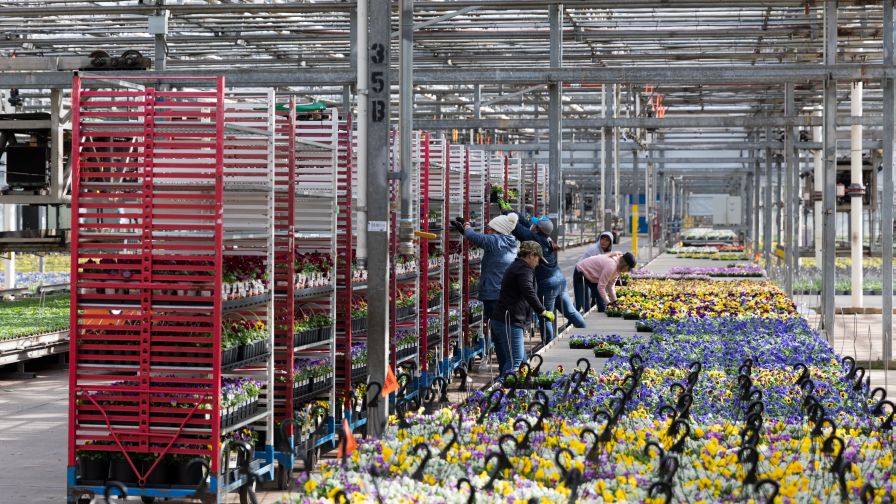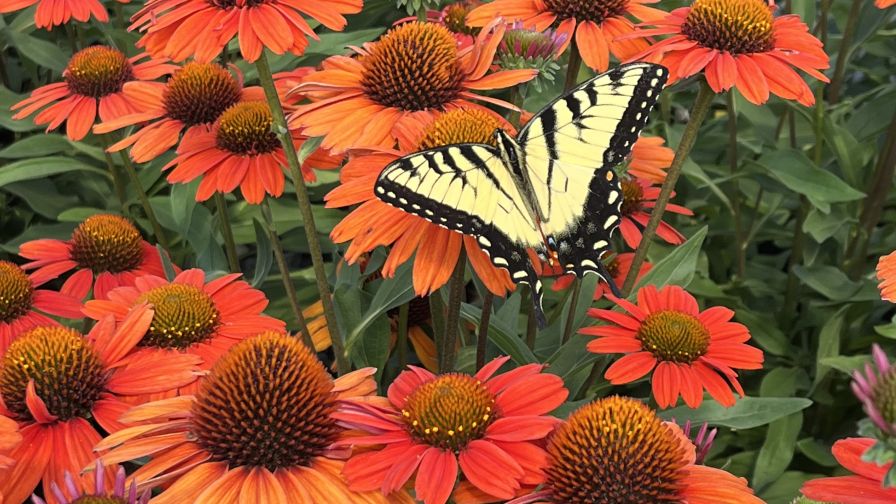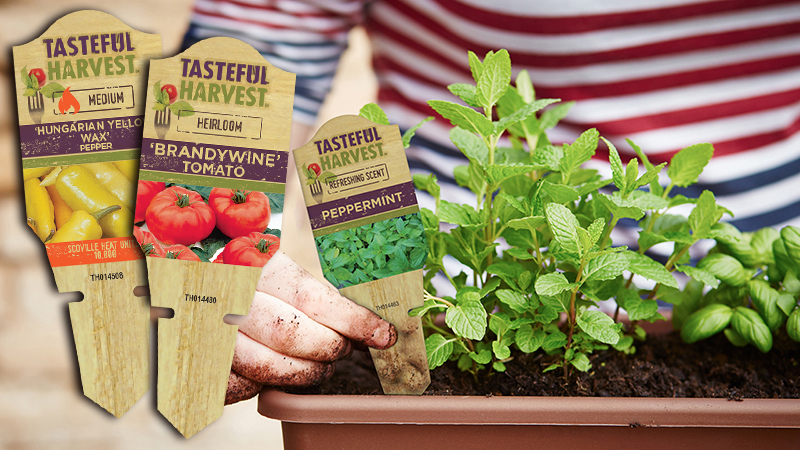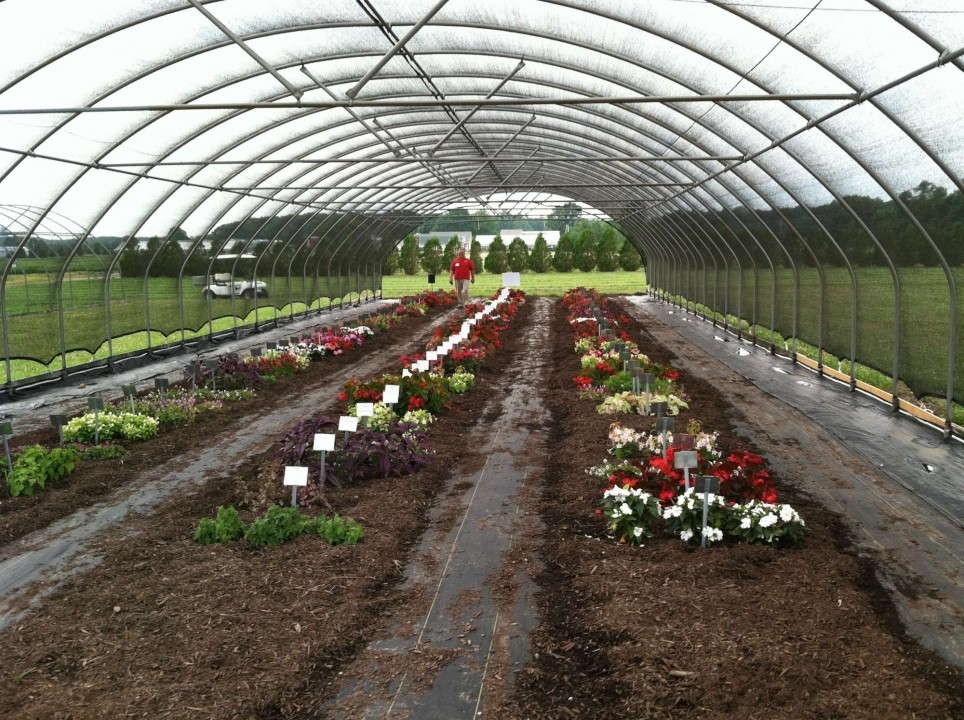Perspective: Vicki Stamback, Association Of Specialty Cut Flower Growers

From dahlias, freesias and snapdragons to dianthus, tuberoses and zinnias, Vicki Stamback grows about 150 items at Bear Creek Farms, the 12-acre operation of which she is president. Bear Creek primarily serves retail florists with cut flowers, and a number of items are produced in Stamback’s seven 30-by-96-foot greenhouses.
In addition to being Bear Creek’s president, Stamback is president of the Association of Specialty Cut Flower Growers (ASCFG). As ASCFG president, Stamback has a unique perspective on the cut flower market, developing trends within it and potential opportunities for her association’s thousands of members. She recently discussed all things cut flowers with us.
GG: What’s your impression of the cut flower market these days?
VS: I think the cut flower market is still strong. It’s probably not as strong as it was just a couple years ago, but it’s strong. If you are approaching your customers with the right attitude and the right products, it’s not a problem at all.
There are always new opportunities for the cut flower grower. There are plenty of opportunities for people who want to get into this business. A lot of growers who belong to ASCFG sell directly to florists; some sell to wholesalers and florists; some sell to florists and farmer’s markets; some just do farmer’s markets; and some are beginning to do wedding work off their farm because of requests.
People want to know where their flowers are coming from. They want to have that connection to a local farm. A lot of our growers are almost becoming mini florists. It’s really up to each individual’s imagination what they want to be.
GG: Which of today’s retailers are offering cut flower growers the greatest opportunities, and which of today’s retailers have less to offer cut flower growers?
VS: This may be different in different parts of the country, and I can only speak for my part of the country (Stillwater, Okla.). In the last year, I’ve seen several florists go out of business in Tulsa and Oklahoma City along with several wholesalers. Frankly, they probably were people who really shouldn’t have been in business anyway. They weren’t managing their businesses well.
That means the florists and wholesalers left still have those markets to fill. They’re actually going to get more business. When smaller florists go out of business, people will have to take their business somewhere.
GG: Are ASCFG members supplementing their cut flower production these days by venturing into other crop categories like flowering potted plants or ornamental bedding plants?
VS: I don’t think they’re getting into it, I think they always have grown those things. Many of our growers sell vegetables and flowers at farmer’s markets. They’ve always grown other things, and that’s the really special thing about our group. (ASCFG members) have different interests, and they’re paying attention to the local niche markets and supplying those markets with what the customers want.
Everyone is very diversified. They’re not just growing annuals and perennials. They’re growing bulbs, woody plant material, bedding plants, potted plants and vegetables. Some are growing edible herbs and selling them to chefs at local restaurants. They’re all taking advantage of opportunities in their area and running with them.
GG: The farmer’s market was such a success for many growers this year. Is there potential for growers to be doing more with farmer’s markets? If so, what should growers be doing?
VS: I think there’s a ton of potential for farmer’s markets, especially because of the buy-local movement. I think there’s always potential for farmer’s markets to do more, but once again, it kind of depends on what part of the country you’re in.
I chose, personally, to go sell to florists because there is an attitude in this part of the country that people go to the farmer’s market to find a bargain as opposed to local and quality. They can find quality at the farmer’s market, but we need to educate consumers that quality is what they need to be going for.
GG: The retail florist is your primary customer. Why is the retail florist still a viable option?
VS: There’s always weddings and funerals–always. I think the florists have made some mistakes in the past. They didn’t pay attention to some of the challenges that were going to come their way, as far as the box stores and grocery stores taking over some of the market. Florists didn’t pay attention and act aggressively, and maybe it would have happened anyway. Who knows?
The florists who are really big on customer service still have a lot of walk-in traffic and plenty of business. It’s because they make people feel comfortable and welcome when they walk into the store.
GG: As a retail florist supplier, will the retail florists be around a decade or two from now?
VS: It is a tough call, but I think they’ll still be around because they have some special things they can offer. It’s going to be interesting to see how members of our association will affect that outcome. Because so many are doing weddings and design work on their farm, that may be the new trend toward the florist. One thing I’ve seen with our growers is how busy they are with people coming to their farms, wanting them to do arrangements, weddings or special events. It makes me wonder if there’s a trend back in that direction.
GG: What effect is overproduction having on growers like those in ASCFG?
VS: Not every grower in the world is concerned with quality; many are just concerned with selling a product. I think that’s another huge advantage ASCFG members have. We typically see our product as it goes to the end consumer, whereas growers in other countries don’t know what their box of flowers looks like by the time it gets to the florist or end consumer. Or they have to pack it so tight to ship it, the flowers never open for the consumer. ASCFG growers are very concerned about quality. Not just quality of the flowers but quality of life and quality of their farms–it all goes hand in hand.
GG: Do you believe the U.S. cut flower industry can return to the heavily domestic industry it once was?
VS: I hope we get to the point of much more domestic flower production. It’s going to take consumer awareness, and consumers demanding product grown in the United States over imports. It’s going to take a change in attitude on the consumer’s part. I see it slowly moving in that direction. Instead of purchasing the cheapest thing on the market, I’d like to see more concern for quality and customer service. Now, how long that will take or if it will ever completely turn around, I don’t know.










